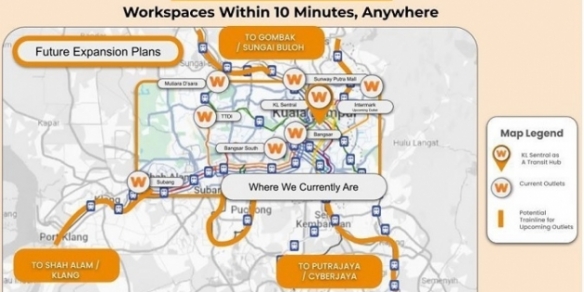Malaysian employees want remote work to stay: Microsoft
By Digital News Asia May 18, 2021
- Some 77% want flexible remote work options to continue; 75% crave in-person time
- About 58% Malaysian remote workers feel overworked, as work-life boundaries blur
 MOST workers in Malaysia want flexible working to continue beyond the Covid-19 pandemic, a new research by Microsoft finds.
MOST workers in Malaysia want flexible working to continue beyond the Covid-19 pandemic, a new research by Microsoft finds.
However, more than half of the local workforce feel overworked and exhausted, with increased risks of burnout as boundaries between work and relaxation blur, the software giant said in a statement.
These are some of the findings from the Work Trend Index from Microsoft, which surveyed more than 30,000 people in 31 countries including 1,000 in Malaysia. The study also analysed trillions of aggregate productivity and labour signals across Microsoft and LinkedIn, it added.
The Index identified several emerging trends in Malaysia which will “shape the future of hybrid work world.”
Firstly, flexible work is here to stay – 77% of workers in Malaysia surveyed want flexible remote work options to continue, while 75% are craving more in-person time with their teams.
Employers are taking note: some 62% of business leaders in Malaysia are considering redesigning office space for hybrid work.
The Index, however, notes that leaders need to stay in touch with their employees. Forty six per cent of them said they are “thriving” right now, which is 16 percentage points higher than those without decision-making power.
According to Microsoft, self-assessed productivity has remained the same or went higher for many employees over the past year. There is a price to this however, as 58% of Malaysian workers feel overworked and exhausted.
At the same time, 69% of Gen Z workers in the country (those between the ages of 18 and 25) say they are “merely surviving” or “flat-out struggling”. According to the study, they are more susceptible to the impacts of isolation, struggle with motivation at work, and lack the financial means to create proper workplaces at home, given that this generation is more likely to be single and early in their careers.
Leaning on each other
Microsoft’s study found that there is a problem with shrinking networks, with teams becoming more siloed in a digital work world. Aggregate trends across billions of Microsoft Teams meetings and Outlook emails showed that interactions with immediate team or close network strengthened with the move to remote work, Microsoft found.
However, interactions outside of that team, or distant networks, have diminished. Thrity eight per cent of workers in Malaysia experienced decreased interactions with co-workers with the move to remote work.
 On the other hand, co-workers begin leaning on each other in new ways to get through tough times. Twenty two per cent of Malaysian workers said they cried with a colleague, while 14% and 26% have met their colleagues’ pets and families virtually, the study noted.
On the other hand, co-workers begin leaning on each other in new ways to get through tough times. Twenty two per cent of Malaysian workers said they cried with a colleague, while 14% and 26% have met their colleagues’ pets and families virtually, the study noted.
These increased interactions, Microsoft’s index finds, led to 44% of workers in Malaysia feeling like they can be their full authentic selves at work this year.
Meanwhile, 44% of Malaysians surveyed said they are planning to move to a new location this year, indicating that people no longer have to leave their house or community to expand their career opportunities. This has also led to 45% of workers and 57% of Gen Zs in Malaysia likely to consider leaving their employers this year, Microsoft said.
“The pandemic has proven that organisations can and must trust their people to be productive from anywhere, and anytime, said Michal Golebiewski, chief marketing & operations officer, Microsoft Malaysia.
“With almost all key economic sectors reopening in Malaysia, leaders now have the opportunity to define a hybrid workplace strategy that combines the best of the digital workplace and the physical workplace.”
This includes empowering people with the flexibility and autonomy of remote work and enabling the crucial human connection with colleagues and customers in person, said Golebiewski.
Golebiewski added that the implementation of a successful hybrid work culture will require organisations to experiment and refine over a long-term period.
“Employees' wellbeing should be at the forefront of this strategy and it will require a rethinking of long-held assumptions by organisations, bearing in mind the impact it will have on the growth, as well as its ability to foster collaboration and innovation.”
Related Stories :


